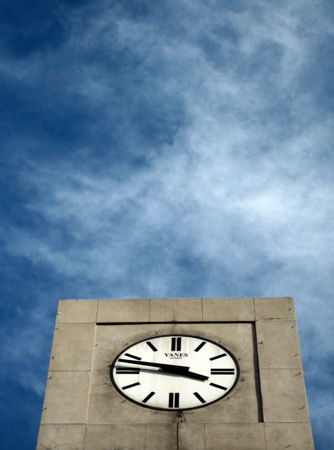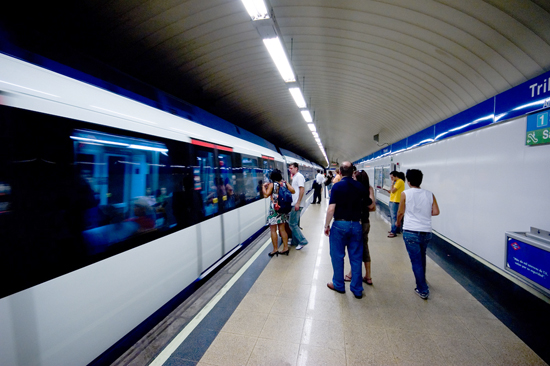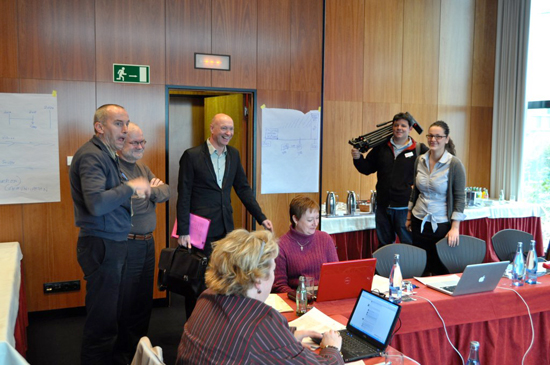Culture and Society: Time Orientation
Perception of Time
The Spanish view time as a linear serious of events stretching from the ancient past into an ever expanding future. Heavily influenced by the Catholic church, time is believed to have started with a divine creation, and is assumed to lead to a distant future Judgment Day, after which souls are resurrected into an eternal afterlife.
Traditional Calendar
Spaniards follow the Gregorian calendar that dates from the 16th century. Introduced by Pope Gregory XIII in 1582, the calendar is sometimes known as the Western or Christian calendar. Under the calendar’s dating system, time is divided into two sections: BC (before Christ) and AD (Anno Domini, Latin for “In the year of our Lord”), which starts numbering the years sequentially starting from what was once believed to be the birth year of Jesus Christ.
One of the more intriguing aspects of the way the Spanish approach holidays is that each of the 18 autonomous communities that make up the country has a choice of which days to declare as official public holidays. The national government chooses up to 9 of the 14 public holidays allowed per municipality, while local governments select at least two. In addition to religious and national holidays, some of the days selected celebrate regional events.
Attitude Toward Time
Spaniards take life as it comes, and tend to assume time is unlimited. What doesn't happen today will happen mañana (tomorrow), or the day after if necessary. However, as internationalization gains ground, especially in the business sectors of Spain’s larger cities, this tendency to procrastinate is becoming less prevalent.
In characteristically polychronic fashion, relationships take precedence over deadlines and schedules in Spain. Keeping time with the clock is widely viewed as unnecessary, while keeping up with friends and family is vital. The adage that the only events that start at the appointed hour are in the theater or bullring is not farfetched, especially in Southern Spain. The fluidity of personal and professional pursuits, however, leads Spaniards to not only interrupt work for personal reasons, but to stay late in the office if necessary. In recent years, a transition to a more monochronic mindset can be found in some of Spain's urban centers, such as Madrid.
Social Engagements
For most social engagements, Spaniards arrive 15 to 30 minutes after the appointed time. This holds true for meal invitations in someone's home or in restaurants, and for parties and other social functions. As mentioned earlier, showings at the theater and bullfights are key exceptions to this rule, and Spaniards show up on time for these events if they expect to see them in their entirety.
Business Engagements
While showing up on time for a meeting is expected in Spain, in practice meetings often start a little late. Usually the delay is less than 30 minutes. This is common whether the business meeting is with an individual or a group. When meeting a government official or functionary, a Spaniard expects to wait even longer; delay is an integral part of most government institutions.
Appointments are commonly scheduled for mid-morning or after 5:00 pm, as many businesses shut down from 2:00 pm to 5:00 pm for lunch breaks and the traditional siesta (nap). Many businesses compensate for this by staying open until 8:00 pm, but some businesses such as banks do not open again after the siesta. Additionally, many Spaniards take Friday afternoons off as well as holidays in August, making scheduling meetings for those days extremely complicated. Another common practice that creates scheduling problems is the habit among some Spaniards in taking an extra day off before or after a holiday. In Spain this creation of an extended holiday is called a puente (bridge).
Arriving on time for a meeting is made easier by the country's good public transportation system, especially in the larger urban centers. Buses and trains tend to be reasonably reliable in most places, arriving and departing normally at or near the stated time.
Production and service deadlines are considered flexible goal rather than rigid requirement. If a deadline is critical, Spanish tend to pad their schedule and maintain friendly and frequen contact with their business counterpart. Delays are generally expected when dealing with government institutions.
Article written for World Trade Press by John E. Roper.
Copyright © 1993—2024 World Trade Press. All rights reserved.

 Spain
Spain 

